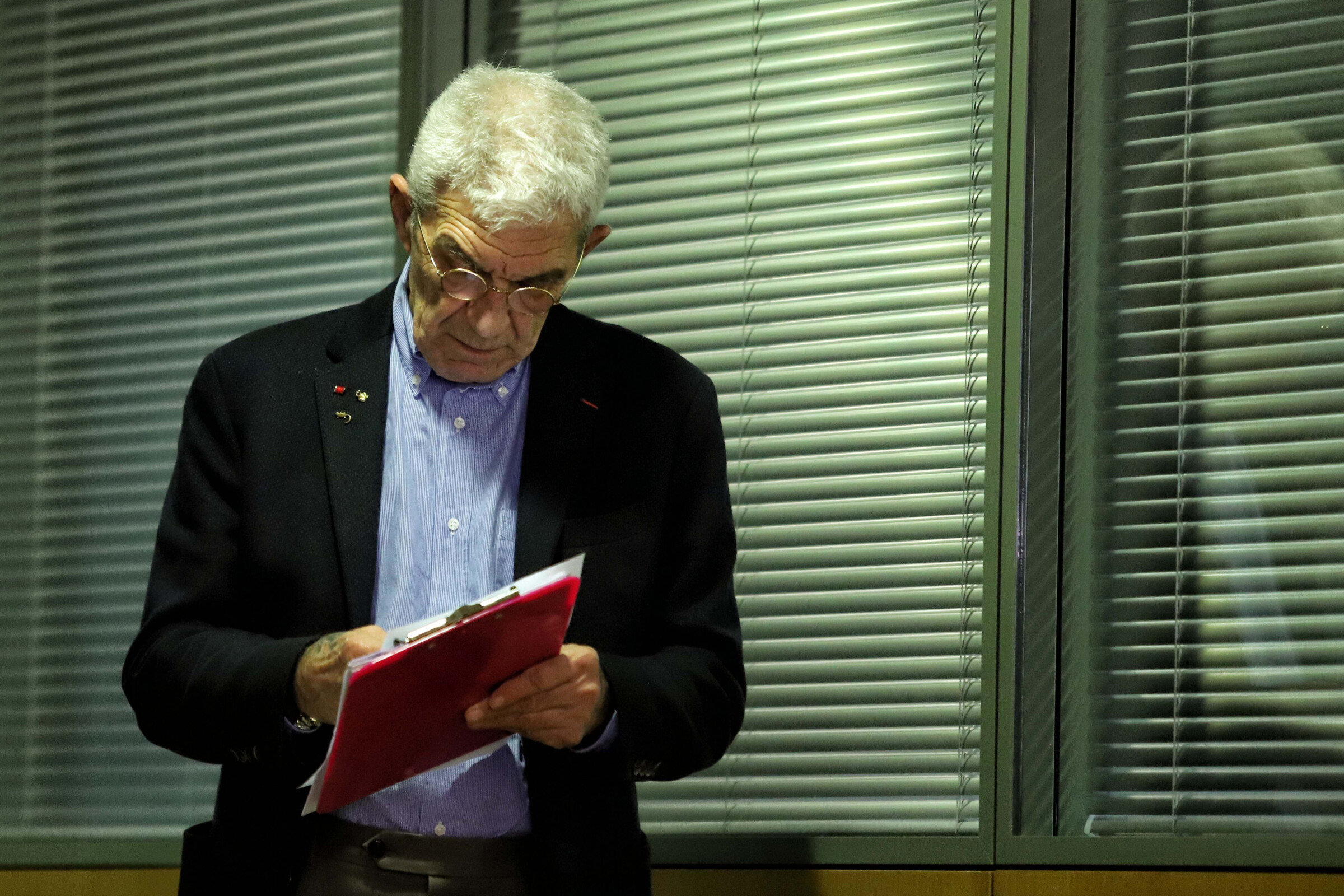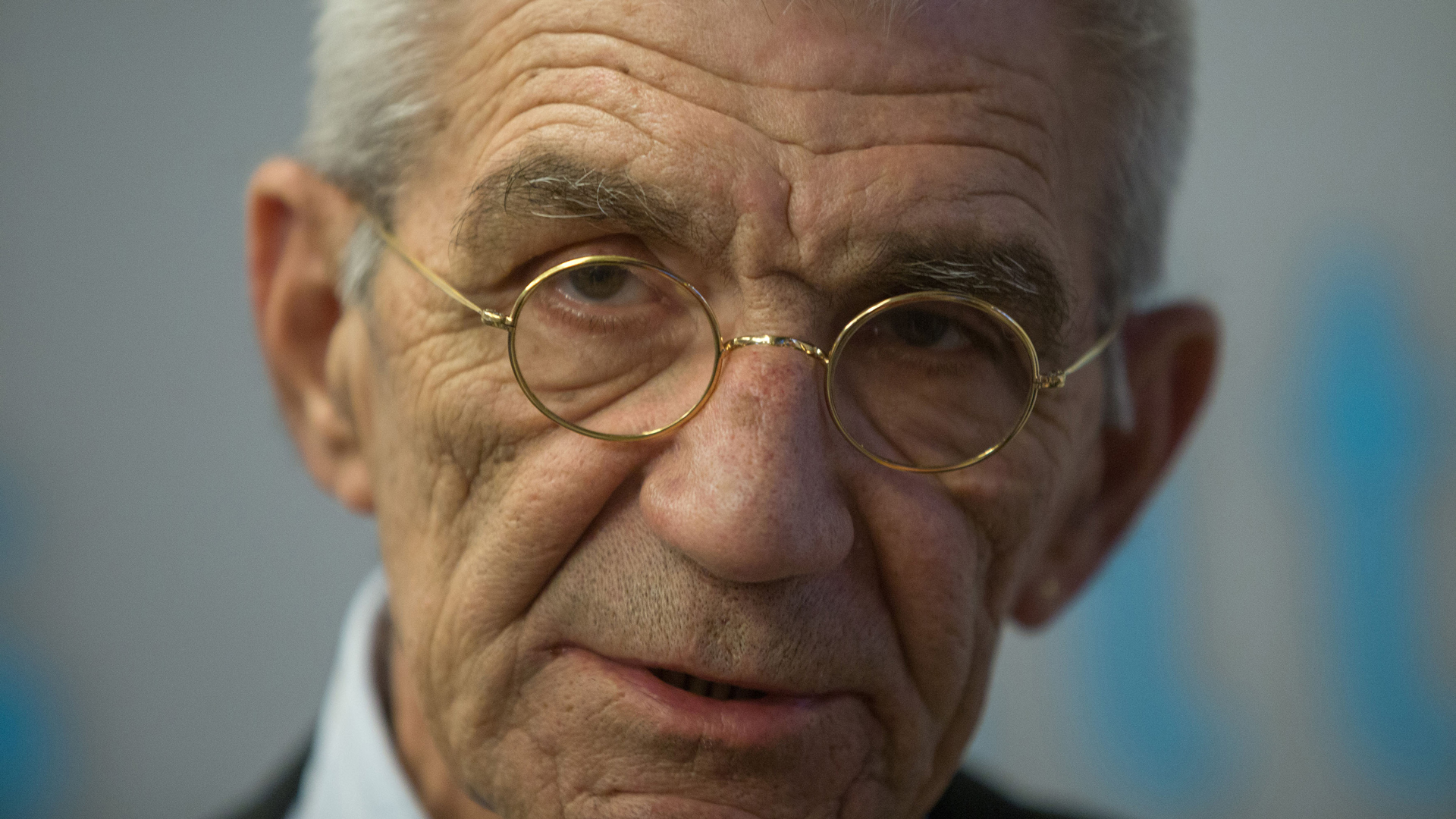The attack at Thessaloniki’s White Tower, the far-right, the police, and the reporters.
The attack on Yiannis Boutaris at the White Tower in Thessaloniki in May 2018 involved members of Pontic Greek unions, far-right activists, and other disruptive elements. Although 15 people were initially accused, the judicial investigation revealed that the Thessaloniki State Security division made minimal effort to identify all those involved, examine their connections to each other, or trace any communications they had before and after the attack. The police report on the incident more or less portrayed it as a random street fight.
Statements from the perpetrators themselves inadvertently reveal who they were. Among them was an active-duty police officer from the Ampelokipi-Menemeni station, who testified that tensions rose upon Boutaris’ arrival at the Pontic Greek Genocide event, because of Boutaris’ statements, which “the entire Pontic Greek community, of which I am a part, has deemed anti-Hellenic and against Greece’s interests.”
Another attacker, identifying as the vice-president of a Pontic association in Lagada, told police that upon seeing Boutaris, he felt “mentally agitated and filled with holy indignation.” He recalled shouting, “Did this laughingstock of a man bring gays here today? (…) He should leave (…) He brought gays, he disrespected the memory.”
At the time, this man was leading most far-right events in Thessaloniki. On his public Facebook profile, he posted messages condemning “illegal colonialism” in Greece and supported the blockades against refugees in Giannitsa and Skydra. During the military parade in Thessaloniki, he joined others holding banners about Konstantinos Katsifas (TN: an ethnic Greek who was killed by Albanian police near the border) and the Macedonian dispute. Another individual accused in the attack on Boutaris was a Georgian expatriate with a history of theft. All those involved claimed they were at the White Tower by chance and that the attack on the mayor was spontaneous.
But this wasn’t true. In the 24 hours leading up to the attack, a toxic atmosphere had been building in Thessaloniki. Kyriakos Velopoulos had even issued a statement claiming that Boutaris attended the Pontic Greek event with an LGBTQ sticker on his lapel—when, in fact, it was a badge symbolising the Pontic Greek genocide.
At the beginning of the same year, the first large rally against the Prespa Agreement was held in Thessaloniki. A group of Golden Dawn supporters, led by Ilias Kasidiaris, stood behind the podium, shouting, among other things, “To arms, to arms, to take Skopje.” Various others intermittently chanted, “Boutaris, you worm, our city belongs to us.” A large group waved Greek flags and carried clubs while shouting PAOK slogans. That same evening, the Libertatia occupied centre on Stratou Avenue was set on fire. The perpetrators have never been identified by the police.

Four months later, on the afternoon of the attack on Yannis Boutaris at the White Tower, five plainclothes police officers were present, but only one intervened to stop the attackers. None of the others were called to explain their actions. Additionally, a man seen on video giving the signal for the attack was not identified. He stood behind the cordon of angry protesters, who were shouting “dirty Jew” and “fucking faggot” at Boutaris. He clapped his hands in the air and signaled for the lynching.
On the eve of the court hearing for the attack on Yannis Boutaris, I had gathered quite a bit of evidence, at the time for VICE. The help of two photojournalists, Konstantinos Tsakalidis and Dimitris Tosidis, was crucial. We spent hours, almost until the early morning, reviewing older photos they had taken for their agencies. These photos showed that at least three of those accused in the Boutaris attack had been present at earlier far-right incidents — at the Thessaloniki Pride and the rally for the Prespa Agreement.
Early the next morning, I spoke with the then editor-in-chief at VICE, Dimitris Theodoropoulos, who told me to prepare the story. I wrote it and then headed to the courts. There were a lot of people, cameras, and some somber relatives. Boutaris was in the lawyer’s office on the first floor. I explained to the policeman at the door that I absolutely needed to see him. “I have a USB stick with photos for Boutaris,” I said.
The policeman ignored me. I told him I wouldn’t leave unless I spoke with the mayor. He asked me to wait, went inside, and came back out, gesturing for me to come in. Boutaris was sitting at the edge of a large table with his lawyer, Nikos Chatzinikolaou, and Calypso Goula, then deputy mayor and the one who had stood by him during the lynching.
They looked at me with a mix of wonder and nervousness. I showed them the pictures on the USB stick and explained. “Where have you been all these days, my boy? Thank you,” Boutaris said to me. I explained to Mr. Chatzinikolaou that the photos were from news agencies. “You did your job, now I’ll do mine,” he replied curtly. I sent a message to Dimitris Theodoropoulos, who published the story on-line at that moment.
A short time later, the defendants in court were stuttering that they had “accidentally” walked by the White Tower and got carried away. A hothead at the front of the mob was now crying and apologising. During the examination of witnesses and the presentation of other evidence, the lawyer showed the photographs to the bench, and a silence spread through the room. “So, the attack on the mayor does not appear to have been random and spontaneous,” Mr. Chatzinikolaou said.
The court, taking other evidence into account as well, accepted that the attack had been organised, a position also shared by the prosecutor at the trial. This did not change the sentences or make the world a better place. However, in the minutes and decision of a trial at the Thessaloniki Plenary Court, it is noted that the attack on Yannis Boutaris was not accidental. One of the perpetrators, a minor at the time, was charged again two years later for attacking members of the Greek Communist Party in Evosmos.
Boutaris had spoken to the city council about the attack. “Patriotism is about not stealing from the municipal treasury and supporting the weak,” he said, and was applauded. The speech was interrupted several times by applause. “Patriotism is about the city facing its history honestly.”
Yiannis Boutaris passed away on Saturday evening, November 9, 2024. May you rest in peace, mayor. Thessaloniki bows its head and salutes you with gratitude.
